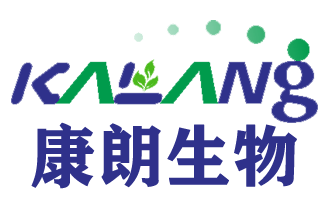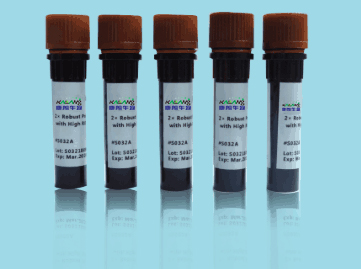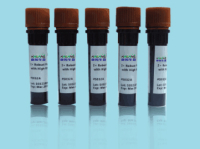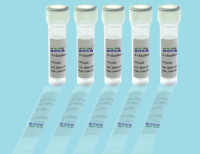

客服电话:021-61998208


Anti OTCase mouse monoclonal antibody
Anti OTCase mouse monoclonal antibody
应用:Elisa:1:1000~5000,IHC:1:50~100
产品名(Product Name)
Anti OTCase mouse monoclonal antibody
货号(Catalog No.)
KL-10229Mo
种类(Category)
Primary antibody
宿主(Host)
Mouse
反应种属(Species specificity)
Homo sapiens (Human)
应用实验(Tested applications)
sandwich Elisa
克隆性(Clonality)
Monoclonal
克隆编号(Clone No.)
90-A-1
偶连物(Conjugation)
Unconjugate
免疫原(Immunogen)
OTCase∆TP[R141G+N199G]
别名
Ornithine carbamoyltransferase, mitochondrial,Ornithine transcarbamylase,OTC
状态(Form)
Liquid
储存溶液(Buffer)
PBS, pH7.4, containing 0.05% proclin300, 50% glycerol.
存放条件(Storage)
Use a manual defrost freezer and avoid repeated freeze thaw cycles.
Store at 4 °C for frequent use.
Store at -20 to -80 °C for twelve months from the date of receipt.
浓度(Concentration)
1mg/ml
亚型(Isotype)
IgG1
分子量(MW)
40 kDa
纯化方式(Purity)
Protein G purified from mice ascites
产品背景:Ornithine carbamoyltransferase (OTC) is a key enzyme in the urea cycle to detoxify ammonium produced from amino acid catabolism. OTC deficiency is an X-linked genetic disorder ranging from fatal in newborns to hyperammonemia and anorexia in adults. OTC is acetylated on lysine residues, including Lys88, which is also mutated in OTC-deficient patients. OTC acetylation was confirmed to occur under physiological conditions. Biochemical characterizations revealed that OTC Lys88 acetylation decreases the affinity for carbamoyl phosphate, one of the two OTC substrates, and the maximum velocity, whereas the K(m) for ornithine, the other OTC substrate, is not affected. Furthermore, Lys88 acetylation is regulated by both extracellular glucose and amino acid availability, indicating that OTC activity may be regulated by cellular metabolic status.
特别提示:本公司的所有产品仅可用于科研实验,严禁用于临床医疗及其他非科研用途!








